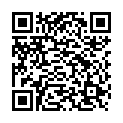|
|
|
| Module code: DFMM-223 |
|
|
2VU (2 hours per week) |
|
3 |
| Semester: 2 |
| Mandatory course: yes |
Language of instruction:
English |
Assessment:
Written exam, 90 min. (50%) and tests over the course of the semester (50%) (can be repeated semesterly)
[updated 13.05.2025]
|
DFMM-223 (P620-0134) Management Sciences, Master, ASPO 01.10.2019
, semester 2, mandatory course
|
30 class hours (= 22.5 clock hours) over a 15-week period.
The total student study time is 90 hours (equivalent to 3 ECTS credits).
There are therefore 67.5 hours available for class preparation and follow-up work and exam preparation.
|
Recommended prerequisites (modules):
None.
|
Recommended as prerequisite for:
|
Module coordinator:
Prof. Dr. Thomas Tinnefeld |
Lecturer:
Dozierende des Studiengangs
[updated 28.04.2025]
|
Learning outcomes:
After successfully completing this module, students - at B2+ level of the Common European Framework of Reference - will:
- be able to apply their advanced specialized knowledge of English to the field of international management,
- have developed their reading comprehension more or less independently in order to understand and analyze challenging technical literature and case studies,
- be able to deliver presentations on specialist topics in the context of international management in a competent manner,
- be able to write clearly structured reports that are understandable across cultures for selected professional fields,
- have strengthened their intercultural communication skills more or less independently in order to interact successfully with international business partners,
- be able to conduct more complex discussions and negotiations in English in the field of international management,
- have increased their knowledge of technical terminology from their field more or less independently and be able to apply it as appropriately as possible,
- be able to understand and analyze complex business processes and strategies in English to the greatest extent possible,
- have improved their language skills independently with the aim of writing market analyses and business plans in an international context,
- be able to competently research relevant current topics and trends in international management in English and present them in a comprehensible manner.
[updated 13.05.2025]
|
Module content:
(inter)culturally relevant, current topics pertaining to the countries in which the target language is spoken.
The course will be oriented on the students lives and everyday study routine.
Current topics from the fields of marketing and market research, logistics, finance, the stock exchange etc. in connection with the specialist lectures held during the semester.
Newspaper and magazine articles with technical and/or (inter)cultural orientation, e.g. from The Times, The Guardian, Time, Newsweek, International Herald Tribune.
Subject-specific vocabulary in the context of the topics (areas) covered
Consideration of all four language skills (speaking, writing, listening, reading)
Specialized grammar
[updated 13.05.2025]
|
Teaching methods/Media:
Presentations by the lecturer
Plenary discussions
Group discussions
Partner work
Group work phases where students tackle specific tasks
Multimedia language lab
Student presentations
Short talks by the students
[updated 13.05.2025]
|
Recommended or required reading:
Teaching materials: texts and exercises compiled by the lecturer
PowerPoint presentations by the lecturer or equivalent visualization forms
Lecturer´s learning platform
Grammars and exercise books recommended in the course
Internet resources
[updated 13.05.2025]
|

